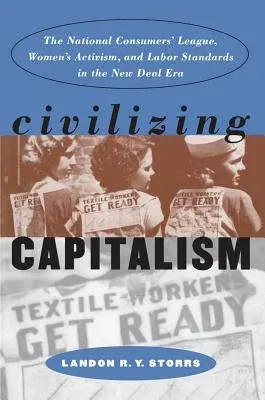Landon R y Storrs
(Author)Civilizing Capitalism: The National Consumers' League, Women's Activism, and Labor Standards in the New Deal EraPaperback, 17 April 2000

Qty
1
Turbo
Ships in 2 - 3 days
In Stock
Free Delivery
Cash on Delivery
15 Days
Free Returns
Secure Checkout
Part of Series
Gender and American Culture
Part of Series
Gender and American Culture (Paperback)
Print Length
408 pages
Language
English
Publisher
University of North Carolina Press
Date Published
17 Apr 2000
ISBN-10
0807848387
ISBN-13
9780807848388
Description
Product Details
Author:
Book Format:
Paperback
Country of Origin:
US
Date Published:
17 April 2000
Dimensions:
23.39 x
15.6 x
2.31 cm
ISBN-10:
0807848387
ISBN-13:
9780807848388
Language:
English
Location:
Chapel Hill
Pages:
408
Publisher:
Weight:
625.96 gm

